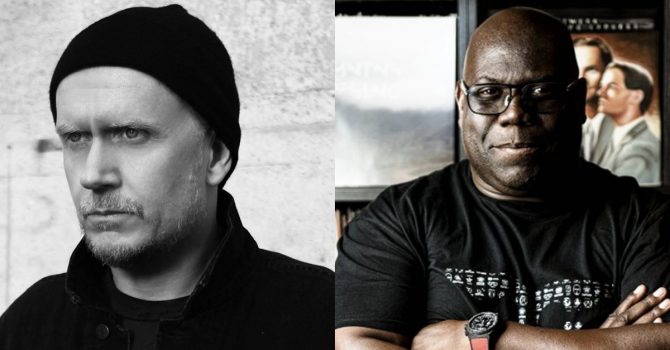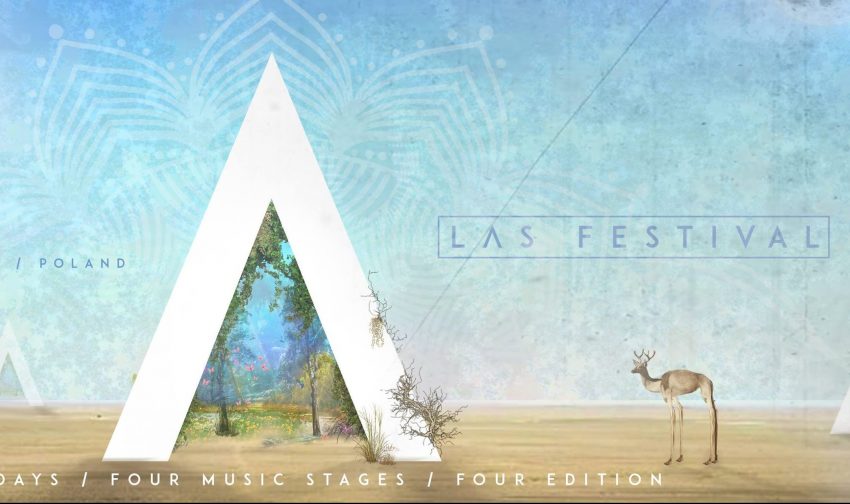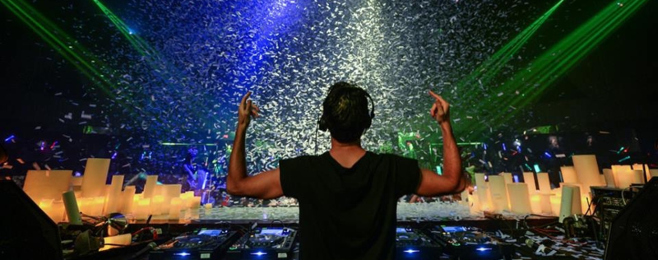Radio Slave: Visual Assessment of Music Opens Doors for Narcissists and Con Artists [Interview]

Although his recent interview sparked lively discussions about the state of the contemporary club scene and DJ ethos, Matt Edwards exudes calm and a desire for substantive dialogue aimed at compromise rather than confrontation. As a producer and DJ under the name Radio Slave, as well as the head of the esteemed Rekids label, he is an authority whose contributions to the evolution of global electronic music are undeniable. However, Matt does not wish to be seen as a boomer sage explaining reality to others. Instead, he points out that many issues that provoke outrage among some are not anyone's fault but merely signs of the times, which are not worth fighting against.
A post dedicated to Matt Edwards’ comments from his interview with DJ Mag went viral in the Polish club scene as well. Radio Slave, much like Dave Clarke before him and many others, speaks candidly. Although that conversation contained its share of spice, it primarily revolved around provocative opinions. In contrast, a few weeks later, Matt responds to my questions in a much more detached manner. This does not mean he shies away from sharing difficult thoughts.
As he admits, he has nothing to lose and can speak freely. This is true—today, at 47, the British artist is a cult figure, and his artistic and publishing achievements are invaluable. However, this time, instead of controversy, we receive firm yet very reasoned arguments. Regardless of whether I ask about influencers acting as DJs, awareness of club culture among the younger generation, or sobriety, Matt responds with stoic calm and confidence. He knows he speaks the truth.
Instead of seeking scapegoats or blaming generational differences, lamenting that „things were better before,” Matt discusses obvious matters that many of his peers either forget or do not want to remember. The development of technology and the presence of influencers in the DJ role are not new topics—they have been part of the scene for decades and occurred, among other reasons, with the consent of those who now complain the loudest about the current state of affairs. Matt arrives at an important thought:
Instead of blaming the kids or expecting things to suddenly change, maybe we should find new ways to keep the culture alive, promote awareness of its history, and support both young and old artists before they disappear.
In saying this, Matt refers to himself and similar individuals—today’s 40- and 50-year-olds, who should take matters into their own hands instead of complaining to try to change their situation. Radio Slave has many such observations, which you will discover by reading the transcript of our conversation.

Matt Edwards aka Radio Slave – An Interview
Hubert Grupa: Your interview for DJ MAG has sparked a significant discussion. Many people agree with your views, while a small portion holds a different opinion, typically among younger individuals. Interestingly, the generation that emphasizes the importance of awareness regarding the origins of a culture and points out any signs of its appropriation often believes that knowledge about the roots of techno, its pioneers, and principles is not essential—what matters is hedonism, and (to quote one of the comments) „no oldies are going to nag us with 'what do you even know’.” Don’t you think that’s hypocrisy?
I guess I’ve reached a point in my life where I’ve really got nothing to lose by speaking out about certain aspects of the scene, and I did address the generational aspect in a recent comment, and mentioned that rather than blaming the kids, or expecting what’s out there to suddenly change, maybe we need to find new ways in keeping the culture alive, promote awareness of the history and support artists young and old before it disappears; And of course for some I might sound like an old man shouting at the clouds but at the end of the day, electronic music, as a format of entertainment is old, so It’s always going to change and evolve so I 100% believe It’s my generation who should be doing what we can to preserve the culture whilst keeping it fresh and exciting.
Radio Slave: I ended the debate on vinyl
Curiously, shortly after your interview was published, I read a conversation with Polish DJ – Ola Teks. She mentioned that learning to play vinyl allowed her to better understand the roots of music and club culture—important labels, producers, and how genres have evolved over the years. Perhaps this is precisely what we are lacking? The digitization of DJing, the selection increasingly curated by algorithms rather than subjective digging, and the availability of tools enabling music production on personal laptops have led us to lose track of all this vital information and not feel the need to seek it out?
Firstly, I’m done with the whole vinyl versus digital debate. The gramophone was invented in 1887 so this topic is a joke and don’t get me wrong; I love vinyl, I love books. I love physical items. I’ve spent most of my life collecting things and a large amount of the records I own are a piece of history but at this stage in the game we really need to adjust our attention to the musical content. Everything should be available to stream, download and it’s a shame when music isn’t available because there’s so much music that I love dearly that’s still not on streaming platforms and it’s a shame as so many of the producers of these records will be forgotten about.
Radio Slave (Live from The Basement) – Defected Broadcasting House
Radio Slave: People forgot that Paris Hilton had a residency at Amnesia in Ibiza
A few months before your conversation, Dave Clarke gave an equally loud interview in which he openly stated that he is ashamed to be a DJ. Last week, a poster from an event in the Polish club scene went viral, featuring the headliner listing her Instagram and TikTok follower counts instead of the usual details like label, nationality, or management. Where did we go wrong? What did we miss along the way that led to such a situation?
That’s a great question and for this I blame technology. For years, and I’m talking about going back to the mid 70’s, DJ’s wanted to play unreleased music straight from the studio, so they’d bring reel to reel tape machines into the DJ booths and then DAT machines, and by the 90’s it was CD players. Later as the tech developed it made the equipment easier and easier to use, to the point where anyone can do it.
So it’s no surprise to see these influencer types DJ’ing and in fact this has been going on for years and I think people have forgotten that Paris Hilton had her own residency at Amensia in Ibiza called „Foam and Diamonds” back in 2013.
We mainly discuss the techno scene. In the aforementioned DJ MAG interview, you appreciate the role DEFECTED has played in the house scene, nurturing a love for house and disco music while also supporting older DJs and showcasing them to a younger audience, and allowing emerging talents to promote themselves alongside them. Is this what is lacking in the techno scene? Who or what (for example, a label) could play a similar role to DEFECTED?
There’s some absolutely incredible people working within the techno scene and to be honest I don’t have the answer; but saying that I’m constantly questioning what’s happening, and from speaking with friends and colleagues who are actively working within the industry there’s definitely a feeling within the community that things need to change for the better.
Radio Slave: I have only love for people and the city of Berlin
I was intrigued by your move to Croatia. Two years ago, when I spoke with catz 'n dogz about their time living in Berlin, they said that „what Berlin gave us as artists, it took away from us as people.” They mentioned that this period was incredibly successful for their careers but also very challenging from a purely human perspective. Do you feel similarly?
I was living there for 15 years and I have nothing but love for the people and city of Berlin. It’s such a unique city and I still get super excited about playing there and we’re actually throwing a huge Rekids party at Watergate on the 31st August.
What does your typical day look like after moving to Croatia? Do you have enough to occupy yourself—recording music, preparing for events, managing the label?
To be honest it’s full on from the moment I open my eyes and it’s almost impossible for me to switch off from the day to day responsibilities as a father, label owner and I’m so lucky that I can now walk to the beach and have a swim in the sea when I need to take some time out.

Radio Slave: Staying true to my path is something I will never be able to do
We have discussed both techno and house music today. Throughout your career, you have effortlessly navigated between these genres and even more eclectic ones. Do you believe that being stylistically flexible and keeping an open mind to various sounds is essential for being a good producer and DJ? Surely, some may argue that it is better to be a master in one field.
There’s a lot to say for staying in your lane but that’s something I’ll never be able to, and whether or not that’s a good thing depends on what you’re trying to achieve. My musical universe is so huge that I find it hard to just play or make one style and this really became a thing once I started digging in the early 90s and at the end of day I’m just a music fan.
Radio Slave: I prefer to play slower sets and stay away from the noise
In recent years, you have made a strong shift towards house music, notably with Wild Life and Strobe Queen. I also listened to your Live from The Basement for DEFECTED. Masterful work! Does the aesthetic in which you create relate to your emotional state, or is it solely influenced by your current inspirations?
I’ve always been a house head. My clubbing roots began at house clubs in London such as the Milk Bar and the Ministry Of Sound so it feels natural for me to play and make house music and I definitely felt less inclined to make techno during the pandemic and this is when I started making the album tracks like Strobe Queen. Also to be honest I’m not really into the fast stuff. I was never into it in the 90’s so I’d rather play slower sets and stay away from that noise.
Radio Slave – Strobe Queen
There is no shortage of talented artists in the house scene, but they cannot expect the same level of popularity as leading techno artists. Who, in your opinion, from the house scene, deserves recognition? Who has impressed you the most recently?
That’s another great question and of course I could just list all the new artists we’re signing to my labels but that would still leave out so many names that are known and still unknown, and right now I have my go to guys and girls who are rocking my world but these are still just the tip of the iceberg and I’m still digging everywhere for new music.
Radio Slave: Electronic music in 2024 is super commercial
Do you think the situation in the house/disco scene is healthier than in the techno scene?
I wouldn’t say one is healthier than the other. Electronic music is a global movement with so many genres and there’s definitely been a shift towards higher tempos but you also have young guys like Folamour and Mochakk who are massive and only playing house and disco so it’s difficult to judge but one things for sure; Electronic music in 2024 is super commercial and I’m still trying my best to be positive and promote and shout about the good stuff.
Radio Slave ft Nez – Wait A Minute
Radio Slave: Music should not be judged or valued as a visual commodity
You have been present on the scene since the early ’90s. In recent years, this period has been heavily romanticized by younger generations, who try to reference those times in their productions or sets. Many artists who started back then, like Dave Clarke recently, recall that the greatest value was that many things were just beginning—something might not have been perfect, but it was authentic, created with available tools through trial and error. Additionally, there were no social media platforms, so your worth was determined solely by your music, nothing more. Would you agree with this? Or is it merely idealizing those times, knowing they will not return?
You’re 100% right and I totally agree. Music shouldn’t be valued or judged as a visual commodity and this has really made it harder and harder for record labels to break new artists because some people don’t want to be in front of a camera 24/7 or have the skill settings of a clown and unfortunately this has opened the gates to the narcissists and posers.
Rekids – Radio Slave | HÖR
Radio Slave on sobriety: saying „no” is more „punk rock”
Congratulations on living a sober life, which is particularly challenging in our industry. What advice could you give to people for whom alcohol or other substances are a problem, yet who fear that if they set them aside, they will be rejected?
I definitely feel that being sober isn’t such a big deal or an anomaly these days. There’s so many alcohol free options available and I’ve also got so many younger friends that just don’t drink. Also when I was growing up the word “wellness” didn’t exist so it’s great to people embracing a different way of life that doesn’t evolve getting fucked up, and I actually believe it’s more “punk rock” to say no.
You are preparing for a set in Poland. What is your mindset? I ask this because I was very intrigued by an interview with Laurent Garnier, who stated that he does not recognize „hot cue points” or similar solutions—what matters to him is what happens here and now, and the art of DJing lies in the ability to influence the crowd and respond appropriately to the situation on the dance floor, rather than trying to impose one’s vision on the set. What are your thoughts on this?
I 100% agree and Laurent is the DJ’s DJ. He’s an avid, fanatical collector and supporter of electronic music so he can adapt to an audience and also at the same time educate a crowd. I’m a big fan and I’d like to think that I can operate in a similar way and I’ll always travel with enough music to go from disco to techno and everything in between.
Radio Slave – Venti
Radio Slave in Poland This Weekend
This coming weekend, at the invitation of the re[de]fined team, Radio Slave will perform in Poland, specifically at Crackhouse in Gdańsk. The event will take place on Saturday, August 9. Besides the headliner, one of the event’s organizers and co-founders of re[de]fined, Piotr Ho, will also perform on the main stage. Meanwhile, the patio will feature KARI, Bednarski, Fibon, and Skja. Note that entry is free until 11:00 PM, so don’t hesitate! After that, an admission fee will be charged at the event gate. All details here.




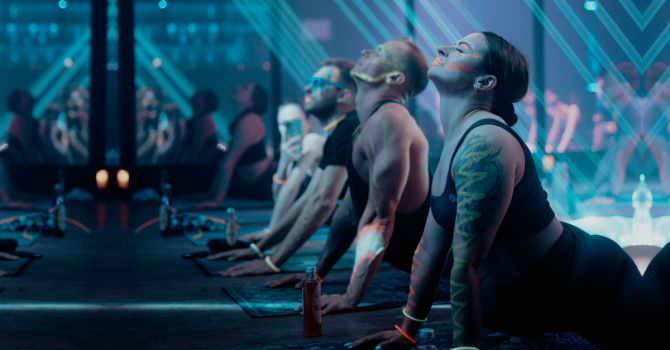
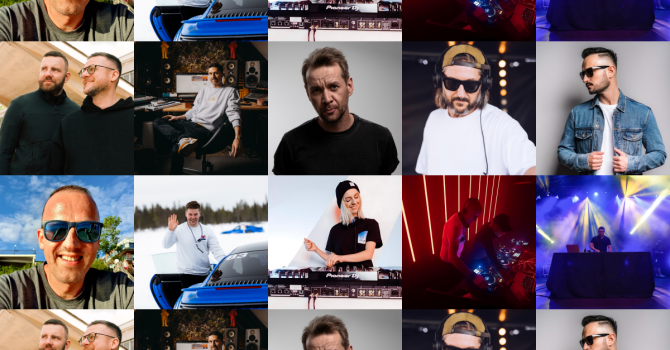
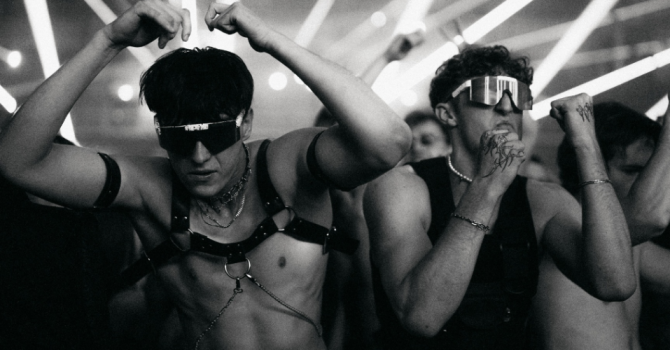
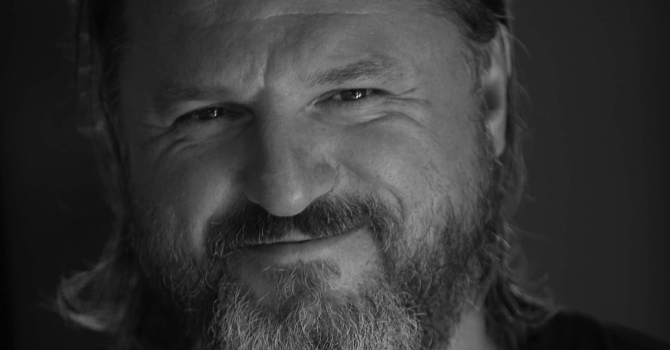
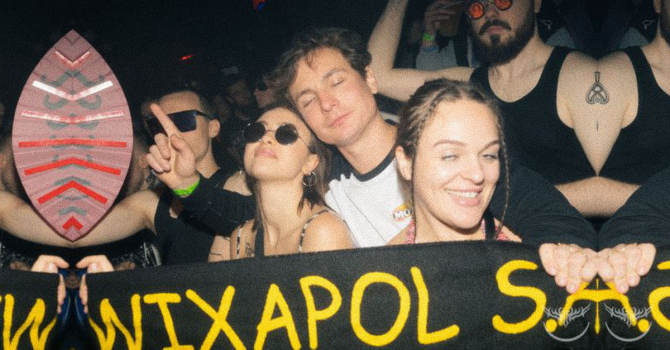
![Radio Slave: Wizualne ocenianie muzyki otworzyło drogę do kariery narcyzom i oszustom [wywiad]](https://muno.pl/wp-content/uploads/2024/08/Radio-Slave-Muno-670x350.png)
